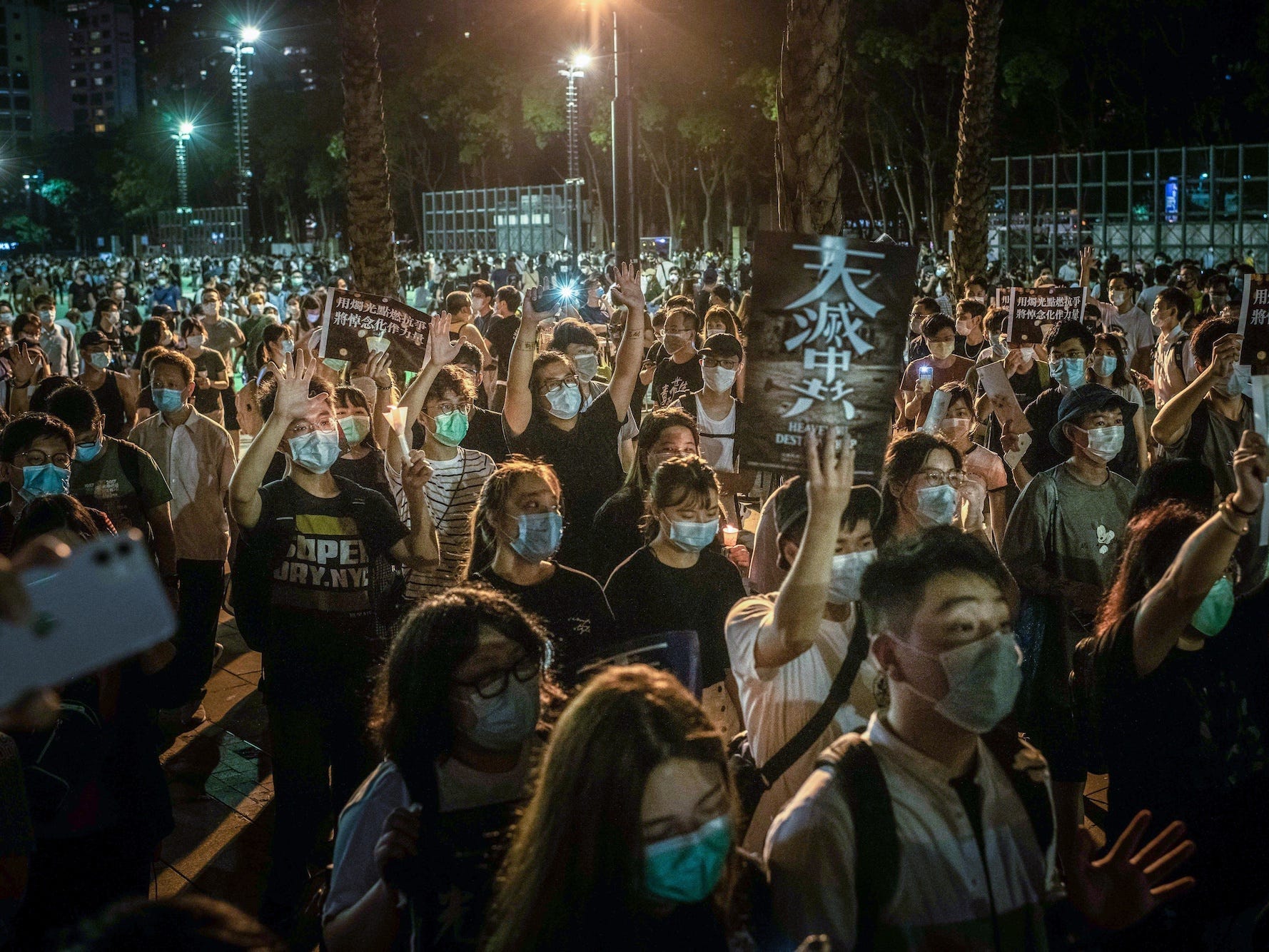
Ivan Abreu/SOPA Images/LightRocket via Getty
- Washington has sanctioned 24 officials over Beijing's ongoing crackdown on Hong Kong.
- This move comes as US Sec. of State Antony Blinken prepares to meet top Chinese diplomats in Alaska.
- Those sanctioned include senior members of the Chinese parliament and Hong Kong police officials.
- See more stories on Insider's business page.
The US is expressing its displeasure over Beijing's crackdown on Hong Kong by sanctioning 24 officials from Hong Kong and China, a move that comes just before US Secretary of State Antony Blinken is set to meet with top Chinese diplomats in Alaska.
According to a CNN report, the sanctions were introduced by the US under the auspices of the Hong Kong Autonomy Act, which was passed last year after Beijing ratified a new, more restrictive national security law in Hong Kong.
The security law contains a broad ban on subverting China's political power over Hong Kong and colluding with foreign forces.
The US sanctions bar those on the list and their families from traveling to the US. Furthermore, being sanctioned under the HKAA also comes with financial penalties, including restrictions on banking and loans with US financial institutions, and limits dealings the individual can have with US financial or property entities.
Hong Kong chief executive Carrie Lam was previously sanctioned under the HKAA. Lam then complained that the sanctions had forced her to stockpile cash as banks had cut her off and refused to do business with her.
Those sanctioned included Wang Chen, a member of the 25-man Politburo, China's top political authority, and Tam Yiu-chung, a Hong Kong official who helped draft the national security law, according to CNN.
Wang had previously called for Hong Kong to be governed by leaders who offer "sincere support for the motherland to resume its sovereignty."
The US made the announcement during a joint visit by Blinken and Defense Secretary Lloyd Austin to Japan and South Korea.
Blinken said in a statement that the sanctions had been put in place in response to Beijing's new crackdown on Hong Kong's democratic processes, which restrict the right of Hong Kong's people to run for election to the city's legislative council.
Blinken said as well that the sanctions underscore "our deep concern with the National People's Congress March 11 decision to unilaterally undermine Hong Kong's electoral system."
"A stable, prosperous Hong Kong that respects human rights, freedoms, and political pluralism serves the interests of Hong Kong, mainland China, and the broader international community," he said.
"The United States stands united with our allies and partners in speaking out for the rights and freedoms of people in Hong Kong, and we will respond when the PRC fails to meet its obligations," he added.
AP reported that Blinken and Austin also expressed concern about human rights violations in Xinjiang and China's increased activity and clear intentions to take control of the disputed Senkaku Islands.
Blinken and national security adviser Jake Sullivan are scheduled to meet Chinese Foreign Minister Wang Yi and the foreign affairs chief of the Chinese Communist Party, Yang Jiechi, in Anchorage, Alaska, this week.
While Beijing has not yet reacted to these new sanctions, CNN indicated that Beijing could respond to Washington's more forceful stance on Hong Kong by calling off the meeting in Alaska.